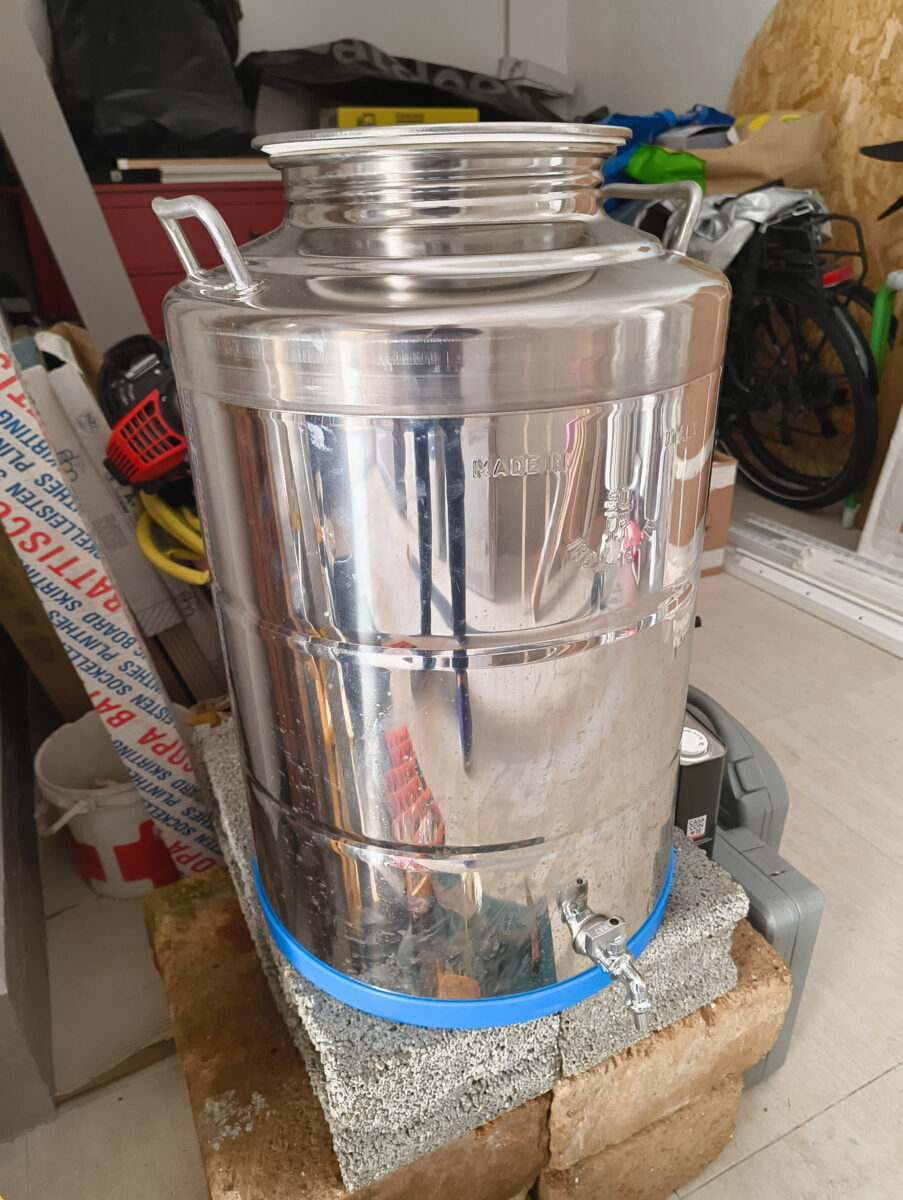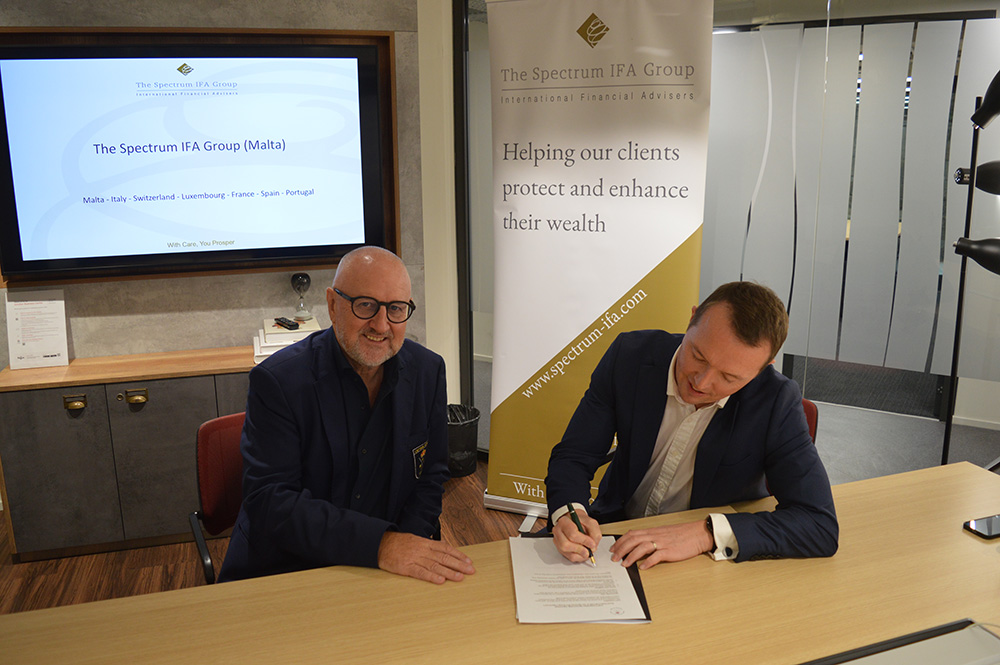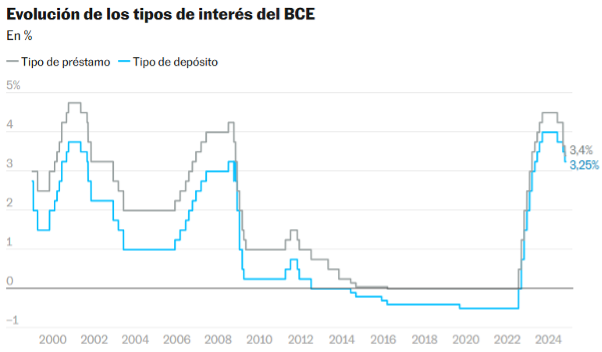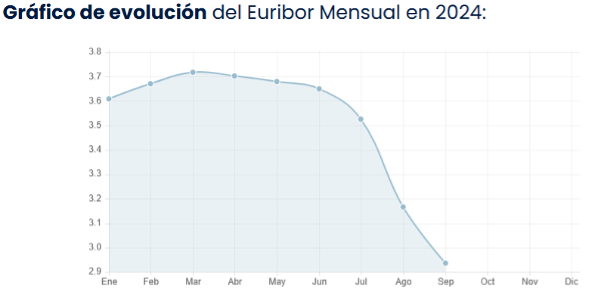Before I get into things I thought I would share a picture of my olive oil container (fusto), all 50 ltrs of it! The raccolta, which I did at the start of October with the help of some locals, produced approx 150 ltrs of oil, of which we split 3 ways.
Finance in Italy – November 2024
By Gareth Horsfall
This article is published on: 1st December 2024


It seemed only fair given I had no equipment and had no idea what I was doing and this will easily cover our annual consumption and maybe some gifts to friends and family. What a great experience though!
Next year I will get more organised and see what I can arrange. The olive oil may be virgin but my virgin olive oil raccolta days are now finally over! I am now starting to really earn that Italian citizenship!
On the property front we are finally getting to the end of the things to be done….at least for now.
After a disastrous first kitchen fitting we had to order another one and will receive that in the coming weeks. We have been cooking and eating in an out house for the last 4 months, but as the colder weather is now settling in it’s becoming more difficult to say the least!!
All the other little bits, which take time and effort, are getting completed meanwhile I am still loving the surroundings, olive trees and watching autumn turn to winter and the changing landscape. I am also finding that on our ‘terreno’ we have a whole load of wild plant foods growing: cicoria, wild finocchio, asparagus, and numerous other edible plants.
I would never have known if it wasn’t for the ex-owner who came around and pointed them all out and advised to do some foraging rather than keeping the grass short everywhere. I will see how that pans out, but it could be interesting and I am keen to try and use the land rather than just curate it (mainly because cutting grass every 2 weeks is hard work) and so I have lots more to learn. A fresh organic larder on the ‘terreno’ might just be the thing; in the areas that I have let grow wild to date the insects and birds seem to be having a ball anyway and some interesting wild orchid type plants have popped up as well.
Anyway, moving swiftly onto financial matters because I imagine you are more interested in that than my explorations of country life…

I refrained from writing an E.zine directly after the US election because everyone seems to have their own opinion of Donald Trump so it matters not what I think. In the end what does matters, for our purposes, are the financial markets and how they react to such events.
If you hadn’t noticed the immediate reaction was very healthy indeed and stock markets rose on the back of the news. Trump is a self confessed businessman after all !!
I saw him doing an interview the other day in which he said that he had spoken to lots of business people since his last time in the Oval Office and had asked what was more beneficial for them: reducing taxes or reducing regulation and bureaucracy. He explained that every one of them said that reducing over-burdensome regulation and bureaucracy was more important by far. So, it might be reasonable to assume that should he be able to follow through with this aim that he can provide a healthy landscape for US companies to flourish.
Certainly the indicators are good! He also has his Department of Government Efficiency head – Mr Elon Musk, rationalising the US government agencies so that should be something interesting to watch if his firing of employees when he took over Twitter is anything to go by.
I myself can confirm that over-burdensome regulation affects our business tremendously these days; there seems to be more and more paperwork than ever before, and much of it could be eliminated or reduced significantly. However, I don’t see that happening any time soon especially from the direction of EU, who set the rules, so we will continue to deal with it. Tech now plays an important part for us in gathering and dealing with client information and it saves you and I a lot of time.
But regardless of all of this, we have to consider how financial markets will continue to react and, at the time of the election someone shared on LinkedIn a graph which I will share with you below:

As you can see, the stock market doesn’t care who is in power, we can all have our own views on Donald Trump and his effect on the world, but in the end it doesn’t matter one tiny bit; but there are 2 takeaways from this graph:
1. The market rises over time
2. In every period there is market volatility and there will be moving forward.
The stock market may have risen since the election and Bitcoin is equally flying, but be under no illusion, at some point markets will correct.
The best thing to do is be invested in solid companies and diversify your portfolio. Match it to your risk profile and decide how much of those ups and downs you can stomach. Patience will take care of the rest for you.
Your financial enemy is not Donald Trump nor anyone who will come after it is simply inflation! The rise in the cost of goods and services over time. Keep your eye on that and not on the daily swings in markets.
On the subject of inflation, it continues its rise – I can’t believe how much things cost in relation to the new house we bought. I asked for a quote from a local gardening firm to cut a long hedge, which is quite overgrown, and when I got it back my eyes started to water. So, like a good Yorkshire man I went out and bought a chainsaw for €180 and thought I would just do it myself, piano piano. In the process I saved myself a whole load of money! Equally, the daily rate for builders, electricians, plumbers etc is now so high! Obviously their cost of work has increased and that is being passed onto us.

Crypto Investors
Are you an investor in crypto currencies? Well there is some rather alarming news for you moving into 2025, if you are an Italian resident for tax purposes.
From 1st Jan 2025, the capital gains tax rate on crypto currency speculation will increase from the flat standard CGT rate of 26% to a whopping 42%! Not great news for you if you have been investing in crypto and are sat on healthy gains, certainly given the fact that Bitcoin has risen significantly over the last few months, effectively doubling in price.
One way to mitigate the higher tax rate on your historic gains might be to cash out before the end of the year and pay your 26% on historic gains in next years tax return. At the same time you can buy back in and in that way you reset the clock on the purchase price, to the new amount. Clearly this means paying 26% CGT on your gains to date, but if significant then it could be worth it. From there on in it will be 42% on realised gains.
Checking your Italian tax return – it might save you money!
One of the things I help my clients with these days is taking a look at their tax returns and making sure that the section Quadro RW ( declaration of overseas assets) is prepared correctly.
This year I found a number of incorrect entries from commercialisti and got them corrected, saving some clients thousands in tax. However, to be fair to commercialisti they are often bombarded with information which is in English and on statements which they don’t know how to interpret. It is no wonder they sometimes get it wrong and we can’t expect them to understand non-Italian portfolio or cash transaction statements. However, that’s no excuse and either we or they have to be more attentive.
So, here’s one tip for checking your own Quadro RW.
You will find in that section that there are lots of little boxes, in which various values need to go. In box No.3 you will find the title.
‘codice individuazione bene’

This is nothing other than the number which you (or your commercialista) must select to identify the type of asset that you hold abroad, but clearly it’s not much good if you don’t have the list of identifier numbers. So, here, below, I have included a list of all the different codes:
| CONTI CORRENTI E DEPOSITI ESTERI | 1 |
| PARTECIPAZIONI AL CAPITALE O AL PATRIMONIO DI SOCIETA NON RESIDENTI | 2 |
| OBBLIGAZIONI ESTERE E TITOLI SIMILARI | 3 |
| TITOLI NON RAPPRESENTATIVI DI MERCE E CERTIFICATI DI MASSA EMESSI DA NON RESIDENTI | 4 |
| VALUTE ESTERE DA DEPOSITI E CONTI CORRENTI | 5 |
| TITOLI PUBBLICI ITALIANI EMESSI ALL'ESTERO | 6 |
| CONTRATTI DI NATURA FINANZIARIA STIPULATI CON CONTROPARTI NON RESIDENTI | 7 |
| POLIZZE DI ASSICURAZIONE SULLA VITA E DI CAPITALIZZAZIONE | 8 |
| CONTRATTI DERIVATI E ALTRI RAPPORTI FINANZIARI CONCLUSI AL DI FUORI DEL TERRITORIO DELLO STATO | 9 |
| METALLI PREZIOSI ALLO STATO GREZZO O MONETATO DETENUTI ALL'ESTERO | 10 |
| PARTECIPAZIONI PATRIMONIO DI TRUST, FONDAZIONI O ALIRE ENTITA GIURIDICHE DIVERSE DALLE SOCIETA | 11 |
| FORME DI PREVIDENZA GESTITE DA SOGGETTI ESTERI | 12 |
| ALTRI STRUMENTI FINANZIARI ANCHE DI NATURA NON PARTECIPATIVA | 13 |
| ALIRE ATTIVITA ESTERE DI NATURA FINANZIARIA E VALUTE VIRTUALI | 14 |
| BENI IMMOBILI | 15 |
| BENI MOBILI REGISTRATI (es. yacht e auto di lusso) | 16 |
| OPERE D'ARTE E GIOIELLI | 17 |
| ALTRI BENI PATRIMONIALI | 18 |
| IMMOBILE ESTERO ADIBITO AD ABITAZIONE PRINCIPALE | 19 |
| CONTO DEPOSITO TITOLI ALL’ESTERO | 20 |
Each number relates to the different type of assets you may hold. No 1 being conto correnti e depositi, which is current accounts and deposit accounts. However, be aware that there are different interpretations because National Savings Certificates or money market accounts, for example, will not fall into this category in Italy even though they may seem as though they should based on our interpretation.
A good start is to get a copy of your Unico tax return and check that the numbers are inserted correctly. You can work the figures out as well, but an asset declared incorrectly i.e bank account instead of stock portfolio, could end up costing you!
Remember, that you can down load a copy of your tax return now on the Agenzia delle Entrate website if you have a SPID or the carta d’identità elettronica which you have linked to the app. We have all the tools, so let’s use them or alternatively, just ask me!
On that note, I will leave you with this shorter E-zine. I will be writing about UK Inheritance tax and the very important changes that have occurred in the 30th October budget in my next E-zine. For once some tax changes could be a huge bonus for anyone looking to live in Italy for the rest of their lives and then pass on as much as possible to their heirs. The rules have been changed to make it much more clear on how you can now escape UK inheritance tax. For the likes of us who live in Italy, where from an inheritance tax point of view the country is like a fiscal paradise, we have a clearer path to taking advantage of Italy’s rules rather than the UK, but like almost everything it will require carefully planning and a full understanding of the changes.
I will certainly get that Ezine to you before Xmas !!
Save UK Inheritance Tax if you live in Spain
By Barry Davys
This article is published on: 26th November 2024

It is highly unusual for a UK budget to give us an opportunity to significantly reduce our tax liabilities. The budget of the 30th October 2024 has done exactly this, and by following a few basic steps it is easy, for those of us who have lived outside the UK for more than 10 consecutive years, to benefit greatly.
Background
The UK currently has an Inheritance Tax system where the estate of the deceased is assessed based on worldwide assets if they were considered domiciled in the UK at the time of death. The term domicile and its meaning has been the important factor to consider up to now, and in the UK has a different meaning to “resident” or “residency”.
There is no need for us to go into the definition of domicile here, as the budget has changed the basis for Inheritance Tax (IHT) assessment to a “residency” test, which has also simplified the tax system.
“Residency” Basis
If you have lived outside the UK for more than 10 consecutive years, your non UK assets will not be liable to UK IHT. The rule is as follows –
From 6 April 2025, the test to determine whether non-UK assets are within the scope of IHT will be whether an individual has been resident in the UK for at least 10 out of the last 20 tax years immediately preceding the tax year in which the chargeable event (including death) occurs.
(Editorial Note. Some other press and advisers are stating it is 10 years, not more than 10 years, outside the UK. This applies to a different tax in the Budget, not IHT).
To meet the rule it is necessary to have been out of the UK for more than 10 years, because of a Split Year rule for taxation that will also apply. Again, there is no need to go into detail here, suffice to know that we need to be out of the UK for more than 10 years in the last 20.
How beneficial is the change to “residency basis” of assessment?
The benefit will depend on our personal circumstances, where our assets are based and the value of our assets.
I have used a case study to illustrate –
Mr & Mrs Ingles
– More than 10 consecutive years out of the UK in the last 20 years
– Assets outside the UK include Spanish compliant bonds, bank accounts, QROPS pension and property, all jointly owned, as follows:
Spanish bank accounts €98,000
Spanish compliant bonds €290,000
House (mortgage free) €525,000
QROPS pension €178,000
Total €1,091,000
– UK assets £325,000 jointly owned
Mr and Mrs Ingles can return to the UK and if death occurs within 10 years of the return the following will apply.
– UK assets assessed for UK IHT fall within the UK nil rate band. Tax due £0
– Assets outside the UK not assessed under the residency basis €1,091,000
At the time of writing the exchange rate would give a value to the non UK assets as £865,814. The savings from not having these assets taxed in the UK would be £346,325.60. (£865,814 * 40%)
How to save UK IHT when living in Spain – top six tips
- Take professional advice
- Don’t move back to the UK until you have more than ten consecutive years out of the UK
- Keep your non UK investments outside of the UK outside if you qualify under the new residency test
- Consider moving excess UK funds to non UK investments. For example, ISAs are taxable in Spain and there is now merit in disposing in favour of non UK assets
- Pensions in the UK are liable to IHT from April 2027 and it is therefore doubly important to keep non UK pensions beyond the scope of IHT
- When drawing income or capital from your investments and pensions, take advice on the manner and order in which you do this, as it makes a difference to your IHT exposure and also how long your savings will last

And here is the icing on the cake
Complete more than 10 consecutive years outside the UK, return to the UK and be unfortunate enough to pass away in the next 10 years, and your estate will get the additional benefits (on top of being IHT exempt on non UK assets):
- If you and your spouse were both long term non resident, you will receive the spousal allowance – 100% IHT free transfer of your assets to your spouse if directed by your Will
- Each spouse receives an IHT allowance of £325,000 with only UK assets above this amount being taxed
- If you have a main residence and your total individual wealth is less than £2M you will get the main residence relief of £175,000
If you pass away outside of the UK and your beneficiaries are in the UK, they will pay no UK IHT if you have met the long term non resident criteria. This is because your non UK assets will not be taxed in the UK. As the UK government taxes your estate, not the beneficiary receiving the bequest, no IHT will be payable.
And because you live in Spain, your UK based beneficiaries will be assessed on residency and as they are outside Spain they will not have to pay Spanish IHT on non-Spanish assets.
Conclusion
The changes to UK IHT rules are hugely important for those of us living outside the UK. It may be possible to leave anything from tens of thousands pounds (or euros) to hundreds of thousands to our family and/or worthy causes.
There is a great deal of planning that can be completed to get the best outcome for you. It will depend on your personal circumstances. However, as a principle, it is better to start this planning sooner rather than later.
To start a conversation book a call with Barry Davys using his online system. This allows you to choose a time that is convenient for you for the call which can be either a phone or video call.
Source: HMRC, UK Gov 30th October 2024
Notes
This article is for general information purposes only. Professional tax advice must be taken before undertaking planning to benefit from changes to the UK IHT system.
The content is based on our understanding of legislation at 25th November 2024
The policy paper issued by HMRC as part of the Budget becomes law when the Act of Parliament has been passed.
You can find out more about Barry Davys of The Spectrum IFA Group and his clients by clicking Barry Davys IFA
Changes to inheritance tax and pensions for expats
By Portugal team
This article is published on: 22nd November 2024

The UK’s latest budget announcement has ushered in significant reforms that could transform how British expats manage their pensions and inheritance tax (IHT) liabilities.
These changes, particularly impactful for long-term expatriates, redefine key aspects of domicile, residency, and asset protection. Here’s what you need to know that will affect British expats and why understanding the changes is critical.
From Domicile to Long-Term Residency: a seismic shift
Historically, the concept of “domicile” has been central to determining UK IHT obligations for British citizens. Many expats found that, despite decades abroad, they were still deemed UK domiciled, exposing their global estates to IHT.
The new rules mark a major shift, particularly impacting British expatriates who have been living overseas for extended periods, replacing the concept of domicile with new long-term residence (LTR) rules. Under these new rules, the test for liability to UK IHT will be based on residency.
Those who have lived outside of the UK for at least 10 of the last 20 years will now be classified as non-UK long-term residents. This change means their global assets (except UK based holdings such as pensions, property, investments) will be exempt from UK IHT.
Therefore, expats intending to remain out of the UK for extended periods of time should seriously consider moving assets outside of the UK.
If an individual does not meet the non-residency criteria at death, their entire estate remains subject to UK IHT and the usual rules, exemptions, and tax rates apply.
New incentives: tax breaks on return to the UK
The budget introduced two noteworthy provisions for British expats considering a return to the UK:
1. Four Years of Tax-Free Foreign Income and Gains: The Foreign Income & Gains (FIG) rules allow non-UK LTRs returning to the UK to enjoy tax-free treatment on income and gains from overseas assets for up to four years.
2. 10-Year IHT Exemption: Returning expats can benefit from a 10-year IHT exemption on non-UK assets, provided they are are still classified as non-UK LTRs at the date of death. After this 10 year period, full UK LTR status applies, reinstating IHT liability on worldwide estates.
Pensions, QROPS & QNUPS – what has changed?
Under the revised rules, expats who have previously relied on UK pensions and offshore pension schemes such as Qualifying Recognized Overseas Pension Schemes (QROPS) and Qualifying Non-UK Pension Schemes (QNUPS) to protect their wealth will no longer be sheltered from UK IHT if deemed UK LTR at death.
Moreover, those who are non-UK LTR at death, but still hold UK based pensions will still suffer UK IHT on the pension as it is a UK situ asset.
An added element is how pensions interact with the Portuguese Non-Habitual Residence (NHR) regime and how, once the scheme ends, pension are generally taxed at scale rate of income tax (up to 53% with solidarity taxes).
Therefore, Portuguese residents with or without NHR who are holding UK, QROPS and QNUPS pension holders should revisit their pension planning.
Double whammy tax – 85%
Where death of the pensioner occurs before age 75, beneficiaries receive UK and overseas pension income tax free and post age 75, the beneficiary is taxed at their marginal rates of income tax. There have been no changes to these rules.
However, with the introduction of IHT to pensions, where death occurs after age 75, beneficiaries could be hit with a “double whammy” of 40% IHT and then income tax up to 45% on any drawdown.
Expats holding pensions should therefore be aware of this potential for double taxation and consider restructuring options for their intended beneficiaries.
Other benefits for expats
Most Brits will be aware of the “7 year rule” when making gifts during their lifetime, whereby there is the potential for the gift to be brought back into the UK IHT net if death occurs within 7 years.
An interesting outcome of the budget is, where a non-UK LTR gifts a non-UK asset, the gift is immediately exempt from UK IHT. There is no 7 year waiting period. Moreover, if the donor subsequently returns to the UK this gift will remain outside of the scope of UK IHT, even if death then occurs within the 7 years or the donor becomes a UK LTR again.
Final word
The sweeping changes underscore the importance of careful financial planning for British expats.
Restructuring assets and revisiting long-term strategies are crucial steps to minimise IHT, income and capital gains tax exposure, and to optimise tax efficiency, and those who are intending to be long-term, or permanent expats should certainly revisit their affairs in light of the new changes.
If you would like to discuss your position in detail, please contact us for a confidential and complimentary meeting.
The Spectrum IFA Group Title Sponsor of The Nations Cup at Royal Malta Golf Club
By Craig Welsh
This article is published on: 12th November 2024

Some big news coming from our Malta office.
The Spectrum IFA Group, thanks to the efforts of our branch manager, Craig Welsh, will be the main sponsor of the Nations Cup.
The Nations Cup will be organised by the Royal Malta Golf Club, teeing off in December 2024. This will be a 3 matchday competition between teams representing Malta, GB & Ireland, Scandinavia and Nordics, and The Rest of the World.
This year’s innagural event will feature Spectrum IFA Group as the title sponsor, bringing a new level of excitement and international flair to the club. Known for delivering tailored financial planning services to expatriates across Europe, The Spectrum IFA Group is a fitting partner for an event that celebrates global connections and international sportsmanship.
The Nations Cup is set to become a highlight in the RMGC golf calendar, featuring teams from Malta, Great Britain and Ireland, Scandinavia and the Nordics, and a collective team from “The Rest” regions. This competition will foster camaraderie and regional pride as these diverse teams vie for victory.
We feel that Spectrum IFA Group is a fitting partner for an event that celebrates global connections and international sportsmanship. We look forward to the camaraderie and regional pride, as these diverse teams vie for victory on Malta’s greens!
We are looking forward to a successful event.

Succession and Domicile Planning in Portugal
By Portugal team
This article is published on: 4th November 2024

Are you interested in learning more about Succession and Domicile Planning? Join us at our free to attend educational workshop on 7th November, where our speakers will be discussing the 2024 tax landscape, retirement planning options, investment solutions and tax strategies for expatriates living in Portugal.
The workshop will cover:
- Portuguese and UK inheritance taxes: thresholds, rules and allowances
- Succession laws: UK rules, Portugal and forced heirship, Wills and Brussels IV
- IHT mitigation strategies and planning ideas
- Gifting: thresholds, rule and avoiding IHT clawback
- QNUPS: does it really shelter UK IHT in practice
- How to protect family wealth, your beneficiaries and bloodline planning
- How to control family wealth during your lifetime and after your demise
- Open Q&A throughout
Succession and Domicile Planning Workshop
7th November 2024
Date: 7th November
Time: 10am-1pm
Venue: Wyndham Grand Algarve
Quinta do Lago, Av. André Jordan 39, 8135-024 Almancil

Pension Planning and Income Generation Workshop
27th November 2024
Date: 27th November
Time: 10am-1pm
Venue: Wyndham Grand Algarve
Quinta do Lago, Av. André Jordan 39, 8135-024 Almancil

The workshop will cover:
- How different types of pensions are taxed in Portugal
- Where tax should be paid on different types of pension income
- Double taxation and how to avoid it
- Drawdown options and the tax implications
- UK pension changes: LTA abolition, impact on taxation
- Tax planning opportunities: Pre-April 2025 planning window
- QROPS & QNUPS: Do you really need one or should you keep your UK pensions?
- How to pass on your pensions and the implications for your beneficiaries
- Open Q&A throughout
Update on UK pensions when living in Spain
By Barry Davys
This article is published on: 4th November 2024

During the Brexit negotiations, many of us Brits living abroad were concerned about our fate following March 2019. Thankfully, Britain and the EU reached a solid agreement about the rumoured ‘freezing’ of the state pension after Brexit, and the result is very positive indeed – state pensions will continue to increase for those of us living in the EU.
To read the full article please click here www.telegraph.co.uk/pensions-retirement/news/britain-eu-reach-agreement-expats-state-pension-brexit/
Further to the post above about the UK State pension. Here is how helpful this agreement to increase pensions has been. All figures per week
- 2017 – £159.55
- 2018 – £164.35
- 2019 – £168.60
- 2020 – £175.20
- 2021 – £179.60
- 2022 – £185.15
- 2023 – £203.85
- 2024 – £221.20
- 2025 – Budget announcement £230.30 (has to be confirmed by Parliament)
At a time that is convenient for you
Nice-Cannes Marathon 2024
By Peter Brooke
This article is published on: 2nd November 2024

Run with Purpose: Peter Brooke and The Spectrum IFA Group Take on the Nice-Cannes Marathon 2024!
On November 3rd, Peter Brooke from The Spectrum IFA Group will proudly run with The Run for Hope Team in the Nice-Cannes Relay Marathon. For years, Peter and Spectrum have embraced this challenge, raising awareness and funds for a cause that deeply resonates with them.
The Run for Hope team, is a partnership between Mimosa and Cancer Support Group 06, brings together a community of runners from beginners to experts, inspiring teamwork and fun to raise funds for cancer support by running in the Nice-Cannes Relay Marathon. Participants enjoy comprehensive training, support and a festive after-party, all contributing to a great cause, the support of cancer patients on the French Riviera.
As experts in financial planning for English speaking expatriates living in Europe, The Spectrum IFA Group provides comprehensive and personalised financial advice, and planning. Peter, who has been with Spectrum for 20 years on the French Riviera understands the complex financial and tax issues his clients face and he and Spectrum are dedicated to helping you navigate these challenges.
By participating in the relay marathon, Peter and Spectrum demonstrate their commitment to the broader community on the Côte d’Azur. Supporting The Run for Hope Team allows them to blend their professional expertise with their passion for making a difference. Cheer on Peter and the whole Mimosa team as they run for hope, showcasing the same dedication they bring to managing your finances.
Together, we can achieve great things—both on the marathon route and in your financial journey!
The Spectrum IFA Group: Running for Hope, Running for You!

Off The Rails
By Michael Doyle
This article is published on: 1st November 2024

I was travelling back to Brittany by train from Luxembourg on Friday 26 July. A day that may have been remembered for it being the opening ceremony of the Olympics in Paris. I expected some disruption due to the sheer number of people visiting Paris, but I’d no idea what would happen next.
If you don’t know by now the rail network was attacked by vandals who set fire to the fibre optics on the tracks and in doing so put almost 800,000 train services “off the rails”.
What I was impressed by was the network’s response. They had police at most if not all stations affected, they increased the labour rate and what could have been a disaster was handled swiftly and efficiently, with trains back running within two days.
As financial planners, we sometimes have to deal with unforeseen and disruptive events. What happened on the rail network was totally unexpected. As a financial planner, I’ve had to guide my clients through the following over recent years:
- The Brexit referendum and stock-market response that followed
- Donald Trump’s election as US president
- Covid (when stock-markets all but shut down)
- The Russian invasion of Ukraine
- Trump losing to Biden
The main thing my clients were happy with was that I provided reliable guidance on investment repercussions and how to address the events.
This was through either:
- Reviewing and validating their existing investment strategies
- Rebalancing portfolios to ensure still aligned with agreed investment objectives
- Discussing tactical opportunities in response to market conditions
- Proposing suitable investment funds or asset managers
- Reassessing their attitude to risk
So if you had a nervous time with your own financial planning during those uncertain times, or indeed at any time, give me a call and we can work together to ensure you remain “on track” to achieve your financial goals.
The relationship with a financial adviser
By Victoria Lewis
This article is published on: 31st October 2024

The majority of individuals that receive professional financial advice across the UK have remained with the same adviser throughout, a new study by St. James’s Place (SJP) reveals, highlighting the power of longstanding advice relationships. Just under 12,000 UK adults were surveyed this year and the results show financial advice and guidance can benefit immensely.
More than 62% have never switched their financial adviser, rising to nearly 75% for those aged 35 and over.
The study also found that the typical relationship with a financial adviser or advice firm lasts around 7 years, but this increases to over a decade for those aged 55 and over – with nearly 31% of this generation having been with their adviser for 16 years or more.
Trust, understanding and financial satisfaction are the main reasons for never switching financial adviser:
• Trusting their adviser
• Being happy with the advice and financial returns their adviser has delivered
• Their adviser understanding their financial situation
• Having a good relationship with their adviser which has been built over several years
• Their adviser understanding their long-term goals and helping to deliver them
• Their adviser looking after both them and their family
• Their adviser having helped them through big life stages/ moments

SJP said: “Financial advice is about much more than numbers on a page or graphs on a screen.
It’s about building deep, meaningful relationships, and as our research shows these can last many years and span generations.
Whether you’re navigating the early stages of wealth creation, planning for retirement, or managing an unexpected life change, having a trusted adviser by your side can make all the difference.
These were the main reasons cited for working with a financial adviser on an ongoing basis:
• Putting the foundations in place for a stronger financial future
• Helping them to save more money for retirement
• Ensuring they have adequate protection in place if they need it
• Getting on the property ladder
• Navigating difficult periods like divorce or bereavement
• Pass on money to their children or loved ones
• Better manage the cost of raising children
• To provide more financial support to elderly family members
Andy Payne continues: “These goals, moments and milestones may be common to many throughout their lives, but the specific circumstances will always be unique. Having support from an expert financial adviser, with not just the technical expertise but the empathy to deploy it sensitively and with their clients’ needs in mind, can be the difference between a hope dashed and a dream realised.”
If you have already have a financial adviser but doubt if they are the right person for you, perhaps it’s time for a change?
Or perhaps have you been struggling to navigate your financial planning on your own?
I have worked with Spectrum as an International Financial Adviser for over 21 years and still look after my clients who worked with me from the very beginning. I advise the children of my clients now and even other family members too.
The synergy I have with my clients is because we understand each other – our relationship is based on trust and confidence and I know it’s an enjoyable experience because they recommend me to their family and friends. That’s the greatest endorsement I could wish for.
ECB Rate Cuts
By Spectrum IFA
This article is published on: 30th October 2024

June, September, and now October. The European Central Bank (ECB) has lowered the interest rate by 25 basis points, marking its third rate cut in 2024 and the second consecutive reduction—a sequence not seen in 13 years (see graph).
Inflation is now at 1.7%, its lowest level since April 2021 and below the 2% target.

The ECB’s last meeting of the year will be on December 12th . Monetary analysts predict four more rate cuts by mid-2025, to be followed by a period of stability. According to the ECB’s survey, marginal rate adjustments could occur in 2026, especially in the first half, which would bring rates to around 2% for that year.
As a result, the Euribor has declined. In October, the monthly Euribor rate stood at 2.711%, a decrease of 0.225 points from the previous month’s 2.936%. Starting 2024 at 3.609%, the Euribor has accumulated a total drop of 0.898 points over the year, as illustrated in the accompanying table and graphs.

As a result, we are starting to see a reaction from the banks. With inflation now at a low and the Euribor experiencing steady declines, further cuts are expected into 2025. This trend has prompted a cautious response from banks, which are gradually reducing interest rates. As the ECB signals possible marginal adjustments by 2026, the Eurozone may enter a phase of rate stability, providing a potentially favourable environment for both borrowers and lenders.
Should you have any inquiries regarding the content of this article, or any other questions relating to mortgages in Spain, please do not hesitate to reach out to us for further information.
Patricia Nadal
spain@spectrum-mortgages.com



